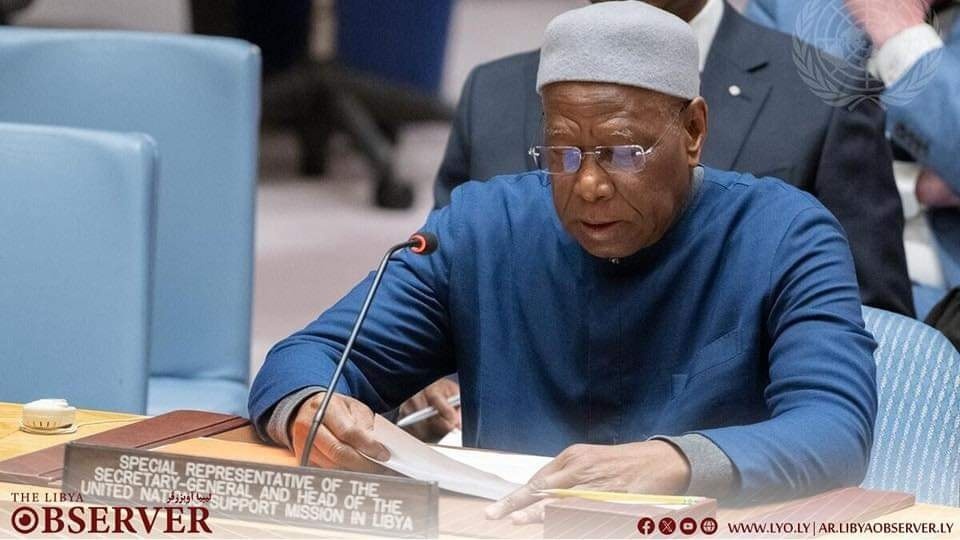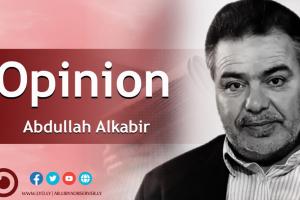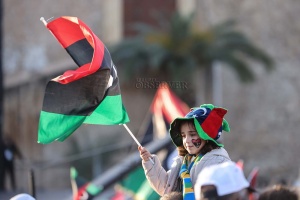By Abdullah Alkabir, political writer and commentator
What will happen following Bathily's resignation?

Contrary to his previous briefings, the UN envoy to Libya, Abdoulaye Bathily spoke in his last briefing in mid-April, before the UN Security Council, in a different language and a sharp tone, in which he criticized the political class, describing it as selfish at the expense of their country’s interest, expressing his disappointment with them and their stubborn resistance to his initiative.
He noted the turning of the country into a playing ground, on which competition rages between regional and international parties, driven by geopolitical, political and economic interests, calling on the UN Security Council members to assume their responsibilities, to oblige all stakeholders to support the efforts of the UN Support Mission in Libya (UNSMIL), to restore unity and legitimacy to Libyan institutions through political dialogue.
Such departure from previous diplomatic language was a clear indication of the end of Bathily’s work as a UN envoy through the submission of his resignation, which he later announced during his press conference, after about 18 months in this position, during which he did not make any achievement that would end or bring the political crisis closer to the end.
The most important question today is what comes after his post becomes vacant. As a routine administrative procedure, his deputy, US diplomat Stephanie Khoury, will assume leadership of the mission for several months, with a direct mandate from the UN Secretary-General, which does not require a vote at the Security Council. This is a repeat of the resignation of former envoy Ghassan Salamé and the US diplomat, Stephanie Williams assuming the task of heading the mission and managing the implementation of the mission and supervising the Tunis-Geneva Dialogue Forum. Due to the difficulty that the Security Council experiences in agreeing on naming the next envoy, Khoury may continue in her position for quite some time.
Bathily’s failure in his mission cannot be considered a failure of his own due to his weak abilities or lack of seriousness- the man took on the mission in an optimistic spirit, and did everything in his power to bring the main parties to the negotiating table- as much as it is a failure of the international system, represented by the major powers that have the decision in their hands at the UN Security Council, and to a less degree failure of the regional parties involved in the conflict, as the UN envoy is a representative of the interests of all these parties, which have an internal extension through their local allies, as a balancing point between all these intersecting and conflicting interests, in a crisis that has reached advanced levels of complexity.
An attempt to anticipate the post-Bathily era requires a careful return to his last briefing, in which he described the humanitarian political and economic scene accurately and realistically, without flattery or illusions. The conclusion of his speech was a warning against violating the ceasefire agreement and therefore, the country’s return to armed conflict, referring to the movements of Haftar’s militias to Sirte last February, and to the volatile confrontations and clashes between the armed factions at the capital and its surroundings. The political stalemate will push some armed parties to activate military solutions and change the map of alliances according to the interests of these parties.
The decline of political solutions is not only limited to local parties. Over the past weeks, arms and ammunition shipments have flowed east and west, from major countries active in the Libyan affairs, as the British delegate to the UN Security Council indicated that Russia had sent ships loaded with weapons to the port of Tobruk, while the Russian delegate spoke about training of Libyan armed factions in the western region, carried out by a security company linked to the US State Department, and several social media pages reported the landing of the US military aircraft at Al-Watiya airbase.
This military drive by major countries is a strong indication of preparation for an influence battle taking place on Libyan soil. The conflict between the US and its allies on the one hand, and Russia and China on the other hand, is raging in multiple arenas, most notably Ukraine, and without resolving this conflict, which is unlikely at the moment, or reaching understandings that define the limits of influence and effectiveness of the major powers, the world will not settle on a new world order. Therefore, this violent and bloody labor continues, and the prevailing state of turmoil does not seem to have an imminent end.
The country cannot be spared the furnace of this conflict, and distancing it from the possibility of paying heavy bills in blood and resources- in an international conflict in which we have no interest- in the presence of the ruling political class, because, as Bathily said, it [This political class] is absorbed in its selfishness, and overpowered by its narrow personal interests.
There is only one way to restore Libya and end the regional international conflict over it, which is to quickly achieve change through elections, to form an authority that represents the national will, and to overthrow all those currently in positions of power, whether their authority is derived from a political agreement, or from force and weapons.
Disclaimer: The views and opinions expressed in this article are those of the writer, and do not necessarily reflect those of the Libya Observer



